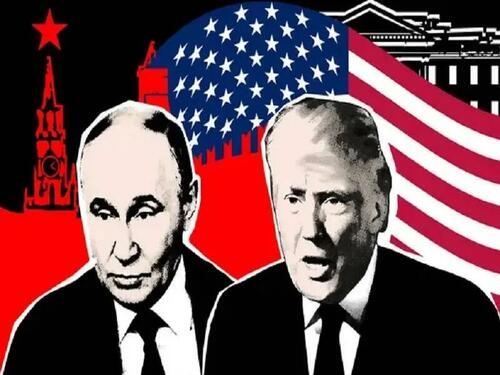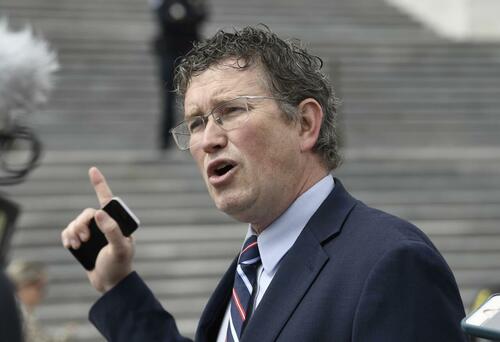Massie Teases Senate Run – Jewish GOP Group Threatens ‘Unlimited’ Spending To Stop Him
Kentucky GOP Rep. Thomas Massie is teasing a potential run for Mitch McConnell’s Senate seat in 2026, and a Jewish Republican group is already threatening to unleash “unlimited” spending to thwart any such bid, given his frequent opposition to legislation pushed by the pro-Israel lobby.
On Thursday, Massie posted a poll on X, asking if he should stay in the House, run for Senate in 2026, or run for governor in 2027. A Senate campaign was the choice of 67% of the respondents.
If you were me, would you:
— Thomas Massie (@RepThomasMassie) February 20, 2025
The libertarian-minded Massie opposes all foreign aid. At his own political peril, he dares to make no exception for the State of Israel, which is among the world’s richest countries. He has also voted against legislation that would infringe on free speech by, for example, punishing colleges that allow students and professors to say the wrong things about Israel.
Add it all up — and stir in the fact that he’s a member of a party whose legislators almost universally toe the pro-Israel line — and Massie is likely the House representative the pro-Israel lobby would most like to eliminate. The idea of him ascending to the Senate has pro-Israel forces racing to DEFCON1.
In March 2020, Massie explains his effort to prevent a massive Covid stimulus package from being adopted without a recorded vote (Susan Walsh-AP)
“If Tom Massie chooses to enter the race for US Senate in Kentucky, the RJC campaign budget to ensure he is defeated will be unlimited,” warned Republican Jewish Coalition CEO Matt Brooks in a statement to Jewish Insider. The Republican Jewish Coalition has tried to defeat Massie before. In 2020, the RJC backed Republican Todd McMurtry in challenging Massie in the GOP primary — only to see Massie trounce McMurtry in an 81% to 19% rout.
So intense is their opposition to Massie that last year, pro-Israel forces starting preemptively spending money to weaken Massie’s Senate prospects. Despite the fact that Massie faced no viable GOP opponent nor any Democrat opponent at all, the intentionally-vaguely-named United Democracy Project — the independent campaign-spending arm of the mighty American Israel Public Affairs Committee (AIPAC) — said it would spend $300,000 on ads on Fox television affiliates in Kentucky. “We are trying to shine a light on the radical anti-Israel record of Tom Massie,” said spokesman Patrick Dorton. “We want every single voter in the state of Kentucky to know about his anti-Israel actions.” Here’s their over-the-top ad:
https://t.co/hEJYFaBcPp pic.twitter.com/yoIdIg0pEX
— United Democracy Project (@UnitedDemocProj) May 9, 2024
In a direct challenge to the Israel lobby, Massie has pushed for the Department of Justice to compel AIPAC and its associates to register under the Foreign Agents Registration Act, a law that requires individuals and organizations that work to advance the policies of foreign governments to disclose their relationships, actions and compensation.
Thomas Massie has publicly stated that every Republican member of Congress, except himself, has an “AIPAC babysitter” to ensure they vote in line with the American Israel Public Affairs…










